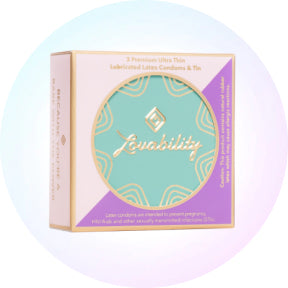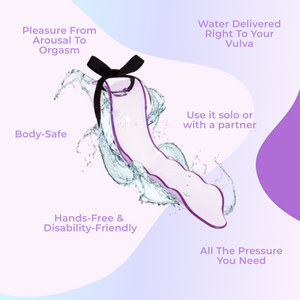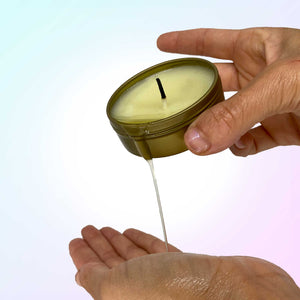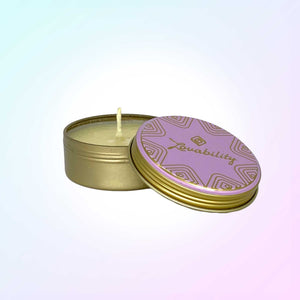The most common form of birth control in use today is the condom. Condoms work by preventing pregnancy and sexually transmitted diseases like HIV/AIDS, with less than 1% failure rate when used correctly every time you have protected sex.
As effective as condoms and birth control are, they are not perfect. The birth rate or pregnancy still occurs due to errors in using condoms, often from misuse. It is important for people who do not want kids yet (or ever) to know males condoms are 98% effective at preventing pregnancy (rounded down to 85% due to human mistakes). Obviously this is not the only reason why condoms are so popular. They are also vital at protecting against sexually transmitted diseases (STD’s).
How do I know if my birth control is working?
Getting yourself tested would be the sure fire way. It is important to monitor how regular your periods occur and whether they are any lighter or less painful.
How effective are birth control pills and condoms together?
If you use both a condom and the pill together, do they have an unmatched ability to keep things zen-like and 100% protect you from getting pregnant? Well, no not quiet. There is no method which is 100% effective (other than avoiding vaginal intercourse in the first place) Having said this, it would be a best practice and the safest option of all available at being effective at boh reducing the risk of pregnancy but also contracting or passing an STI.
Ideal use, or typical use
These methods show how effective they can be with "perfect usage", which means that the correct technique is always used.
If contraception is not used correctly, it will be less effective in preventing pregnancy.
Birth Control Pill
- These are around 91% effective when taken daily.
Birth Control Implant
- These are around 99% effective and typically last up to 5 years. Low maintenance too.
IUD
- These are reported to be 99% effective and can last anywhere from 3 to 12 years. Low maintenance too.
Male Condoms
- 85% effective for birth control. A new condom is required every time.
Female Condoms
- Internal condoms are reported to be 79% effective.
Female Sterilization also known as Tubal Ligation (permanent contraception)
- Female sterilization: More than 99% effective after being sterilized.
Male sterilization or Vasectomy (permanent contraception)
- A vasectomy is 99% effective at preventing pregnancy occuring.
What are the effects of condoms on pregnancy?
Condoms are 98% effective in preventing pregnancy if used correctly each and every time you have sex. In real life, condoms may only be effective 85% of the time due to human error, which means that approximately 15 percent of those who use condoms as their only method of contraception may still fall pregnant.
Should I still use condoms while on the pill?
For some women, the pill is not enough to keep them safe from STDs. Women on birth control should continue using condoms every time they have penetrative sex and especially with new sexual partners!
It’s important to note that as effective as the pill is for preventing pregnancy, it does not however protect against sexually transmitted diseases like HIV/AIDS or HPV. It also does not cover other things such as chlamydia which can be contracted during oral activities (such infection could cause infertility in future).
Can you use both birth control and condoms?
Yes, using both birth control and condoms is a perfect way to lower your chances of pregnancy. When used together, it is even more effective at preventing sexually transmitted diseases like HIV or HPV, thanks in part to their vaso contraceptive effect that makes sex safer for women by reducing abrasions caused during intercourse, among other things.
Is one pill enough to stop pregnancy?
Yes, If taken within the grace period of 24-72 hours after unprotected sex or contraception failure, then the morning after pill is normally accepted as being very effective.
Do you need to pull out with an IUD?
Firstly, if you are genuinely considering removing the IUD yourself, I would urge you to stop for a moment and consider getting it done safely and professionally by your healthcare practitioner. If, however, you are adamant you want to pull out your IUD yourself, there is a string in the vagina, which it is attached to. Some people report that their partner can see it, which usually means they have an idea of how far up into the vaginal cavity it goes.
How do you tell if you are pregnant with an IUD?
I have heard of the contraceptive implant, but how do you know if you could still be pregnant despite using an IUD for protection in the first place?
There is no way to identify this with complete certainty unless it happens in person at your doctor's surgery. One common observation is women will have some typical morning sickness and fatigue. Other signs include:
- Sudden severe abdominal pain
- Nausea
- Fatigue
- Weakness
- Dizziness or fainting
How do I know the pill has worked?
You are probably wondering how to tell if the morning after pill has worked. Well, there is always waiting for your next period or if you can’t wait and want the most reliable answer, then get a test kit. These pills must be used within 24 hours of unprotected sex, can be 99% effective.
Can pills delay my periods?
Birth control pills have been around for over 50 years, and they are the most common form of female contraception today. The hormonal process by which birth control works means that some people may experience lighter periods than they are used to or even find they skip them altogether. This however is perfectly normal.
What are the disadvantages of IUD?
There are many potential disadvantages to having an IUD:
- Some women report that their periods may become heavier, longer or more painful after getting one in place; however, this can improve over time with use.
- It is also important to know that it does not protect against STIs, so you will still need condoms if you are taking precautions.
- Any infection during examination or whilst fitting the device if left untreated could lead to a pelvic inflammatory disease that requires medical attention right away.
Do I need to use condoms with an IUD?
An IUD whilst very effective at birth control will not protect you from STDs. Therefore, to reduce the risks further, you may consider combining use with a condom as well. Whilst still not 100% effective, it will reduce the risks further so you are both better protected.
Is an IUD safer than a pill?
Yes, it can be. The IUD is reported to be 99% effective at preventing pregnancy, whereas the pill is 91%. The reason for the pill being slightly lower is often due to incorrect use such as simply not taking it regularly.
Should I take a pregnancy test if I have an IUD?
A pregnancy test is an easy way to determine whether or not you may be pregnant so you can get a clearer idea of whether you may or may not be. If your periods are irregular or stop entirely for more than two weeks after suspecting that the IUD has failed, then it’s worth taking a quick and inexpensive Test Kit to be sure.
In most cases, these types of tests are 99% accurate, meaning they'll give off negative results if there's no chance whatsoever of you being pregnant.
More Articles You Might Love

Get To Know Your Vulva




















